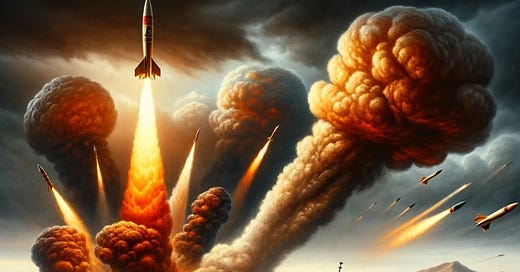The Tumultuous Seas of Yemen
The escalating conflict in Yemen has intensified following another U.S. strike, sparking a stern warning from the Houthi militia for a "strong and effective response." This development occurs amid heightened tensions, with the U.S. committing to safeguard shipping routes from the Iran-aligned group's attacks.
The recent U.S. actions in Yemen, including a strike on a radar site, have heightened concerns about the conflict's escalation, which has already seen involvement from various groups across the Middle East, including Hamas, Israel, and Iran's allies in Lebanon, Syria, and Iraq.
President Joe Biden, addressing the situation, revealed that the U.S. sent a private message to Iran concerning the Houthi attacks, but withheld details. He expressed confidence in the U.S.'s preparedness.
Houthi spokespersons have downplayed the impact of the strikes, asserting their continued capability to target Israel-affiliated vessels in the Red Sea and Arabian Sea. The U.S. and U.K. strikes, including the latest ones in Sanaa, were described as having limited effect on the Houthis' operations.
The U.N. special envoy for Yemen, Hans Grundberg, has urged restraint and warned of the situation's precariousness.
The Houthis, who control significant regions in Yemen, including Sanaa, have expressed their aim to support Palestinians against Israeli actions. They have launched attacks not just on vessels without known Israel connections but also directly at Israel.
The U.S. response has been forceful, with the guided missile destroyer Carney launching Tomahawk missiles to diminish the Houthis' maritime assault capabilities. This military action is viewed as part of a broader strategy to protect international shipping routes.
The conflict's intensification is seen as an act of "brutal aggression" by many in Yemen, marking a new phase in a decade-long war. The support for Palestinians is viewed as a moral obligation by Yemeni citizens, who vow unwavering support until Palestinian lands, including Gaza, are liberated.
Amidst these developments, massive demonstrations in Sanaa showcased the public's denunciation of Israel and the U.S.
The White House emphasized the limited nature of the U.S. strikes, aimed at curbing the Houthis' missile and drone capabilities threatening shipping. President Biden, revisiting the Houthis' designation, implied their classification as a terrorist group.
The situation has further complicated Middle Eastern dynamics, particularly since Hamas's aggressive actions in Israel last October, leading to significant casualties and heightened Israeli military responses.
Israeli Prime Minister Benjamin Netanyahu has announced a substantial increase in defense spending, reflecting the region's escalating tensions.
At the U.N. Security Council, concerns were raised about the conflict's widening scope, while the U.S. accused Iran of militarily supporting the Houthis. Iran has condemned the Western strikes but shown no indication of seeking direct conflict.
The conflict's impact on global shipping is significant, forcing rerouting and raising concerns about inflation and supply chain disruptions, as evidenced by the soaring container shipping rates.




